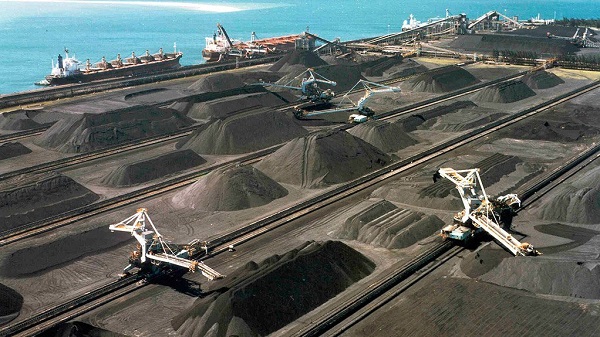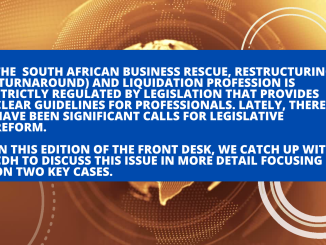

Founder: Turnaround Talk
South Africa has long been one of the countries in the world which has been the fore runner when it comes to commodity production and exporting. The economic heart of the country was found on the discovery of gold and similar discoveries of commodities founded towns such as Kimberly, Barberton and Krugersdorp.
From gold, to diamonds, to platinum, uranium, rare-earth minerals and coal, there is no denying South Africa’s history of, and potential to create some of the world’s most innovative and profitable mining companies.
From dire straits to unique opportunities
While the mining industry has long been the foundation stone of the South African economy, there is no denying the crippling impact that the Covid-19 Pandemic has had on the industry. During the hard lockdown – which was implemented on 24 March 2020 – companies had to halt production and work with limited staff members if the company was considered an essential service.
This caused many mining companies to scale back their operations. Added to this is the current electricity crisis that the country is battling with. During loadshedding, Eskom’s first port of call is to ask mining companies to reduce their energy consumption which again scales back operations which are already under pressure.
The Richards Bay Coal Terminal (which is situated in Northern KwaZulu-Natal) is one of the largest coal export terminals in the world. However, the terminal has not been operating at full capacity for a number of years because of mismanagement and technological inefficiencies. Added to this are the challenges that Transnet face when it comes to transporting coal to the RBCT.
There is an opportunity for mining companies to take advantage of an imminent increase in global demand for coal.
Indonesia is currently the worlds largest coal exporter. However, the country recently announced that it would be banning coal exports from the country. A senior official from Indonesia’s energy ministry announced that coal exports from the country would be banned in January given the country’s own domestic energy security concerns, mainly low coal supplies to its domestic power plants, AFP reported.
An article by News24 points out that, in 2020 alone, Indonesia exported 400 million tons of thermal coal. By comparison – South Africa’s total sales (domestic and exports) totalled just over 247 million tons. This is down from about 265 million tons sold in 2019.

Photo By: RBCT
Growing coal demand
The News24 article points out that the IEA expects global coal demand to reach its highest level in 2022, before plateauing and then declining. China and India, accounting for two-thirds of the world’s global consumption will drive consumption trends. Coal demand growth in China will average at least 1% per year between 2022 and 2024, in India this will be 4%.
“Based on current trends, global coal demand is set to rise to 8 025 Mt in 2022, the highest level ever seen, and to remain there through 2024,” according to the IEA.
Restructuring the entire ecosystem
From a business rescue and restructuring point of view, the growing demand for coal is a unique opportunity for companies that are facing financial distress to capitalise on a headwind of demand that could be their salvation.
However, there are significant infrastructural constraints that are inherent in the whole ecosystem. Yes, some of these companies are facing financial distress due to poor management. But, as Robin Nicholson (Director of Corporat-911) points out, we are also seeing well run companies facing financial distress because of external threats to their companies that they cannot control.
Turn your lights down low
The first port of call is Eskom. The utilities challenges are well documented as is the fact that Eskom CEO – André de Ruyter – is trying to turn the company around.
A major step in the right direction would be to split the company into three separate units (generation, transmission and distribution). It would then become easier to isolate and identify inefficiencies and take appropriate action. This means that Eskom will have to build a culture of accountability and the days of corruption will need to come to an end. There will also have to be a changing of the guard at management level. If senior managers are underperforming, they need to either have a professional growth plan that can help them achieve these targets, or they need to be dismissed.
This much was made clear by De Ruyter in an open letter to the company where he said: we tend to blame Government, the weather and all sorts of very creative reasons rather than step up and accept responsibility and accountability for our own actions. This is something that we need to change as such behaviour impacts our sense of urgency. He added: people tend to display inertia and lack of accountability without any consequence management. Mediocrity is tolerated.
If we read between the lines, any turnaround plan for Eskom will involve addressing the infrastructure challenges that the business faces as well as the work culture that currently exists within the utility.
Once again, the infrastructure challenges that the company faces are well documented. A news 24 article once described some of Eskom’s key power plants as being in a shocking condition that faced years of neglect.
One of the key announcements made by President Cyril Ramaphosa in 2021 was that companies can produce up to 1 000 mw of power without having a licence. This will allow mining companies to be self sufficient as well as electricity providers to communities that surround the mine.
From a turnaround perspective, this will require a significant capital investment to put in place the infrastructure that can produce this power. Mining companies can benefit from an independent business review which will show mining companies where they have to adjust their operations in order to get the necessary funding to make the necessary infrastructure investment.

Photo By: Albert Hyseni via Unsplash
Going to the end of the line
Transnet is another State-Owned Entity that is facing major challenges. An article published by Fluxmans last year stated that the company had effectively been derailed.
The article points out that Transnet’s CEO, Portia Derby, recently reported an R8.8 billion loss at Transnet for the year ended March 2021, a R11.1 billion swing from the previous year’s profit of R2.3 billion.
Management blames this negative swing on lower volumes and revenues related to the Covid-19 pandemic and ensuing lockdowns.
The article adds that, if these losses can be reversed, then what Transnet would need to avoid liquidation is a moratorium from its creditors. This can be achieved by agreements concluded between it and its creditors or by legislation. The former is highly unlikely but possible and the latter can be achieved with certainty if Transnet is placed under supervision (i.e. business rescue in terms of Chapter 6 of the Companies Act 71 of 2008).
The Fluxmans article points out that there are knock-on effects arising from it being placed into business rescue such as the calling up of guarantees if it holds any third party guarantees to secure its debt. This is likely given that Transnet is a parastatal and will lead to a multitude of problems arising from state intervention and the Public Finance Management Act of 1999 (a perfect example of this being the business rescue of South African Airways).
If coal mining companies are going to capitalise on the increased demand for coal, turning around Transnet will be key.
Clarity in 2022
Last week, Turnaround Talk published an article detailing some of the biggest stories from 2021 that will receive some clarity in 2022.
This is most certainly one of these issues. The Transnet issue cannot be ignored as the company plays an important role in negating the worst impacts of the current global supply chain crisis. Therefore, expect concrete plans on how Transnet can address its operational inefficiencies during the year.
There will also be more clarity on how Eskom can address its challenges this year. We may not like the announcements that are made (such as increased electricity tariffs), but drastic action is needed to address these issues.
Turning around or restructuring the whole ecosystem will be key to taking advantage of the unique opportunity that has been presented by Indonesia’s decision. If we have learned anything from our own energy crisis, the Indonesian electricity crisis has the potential to last for several years. Therefore, while unique, the opportunity presented to South African coal miners can last several years.
By implication, this may mean that business rescue and turnaround professionals may face many years of increased demand for their services as informal restructuring becomes more popular.




